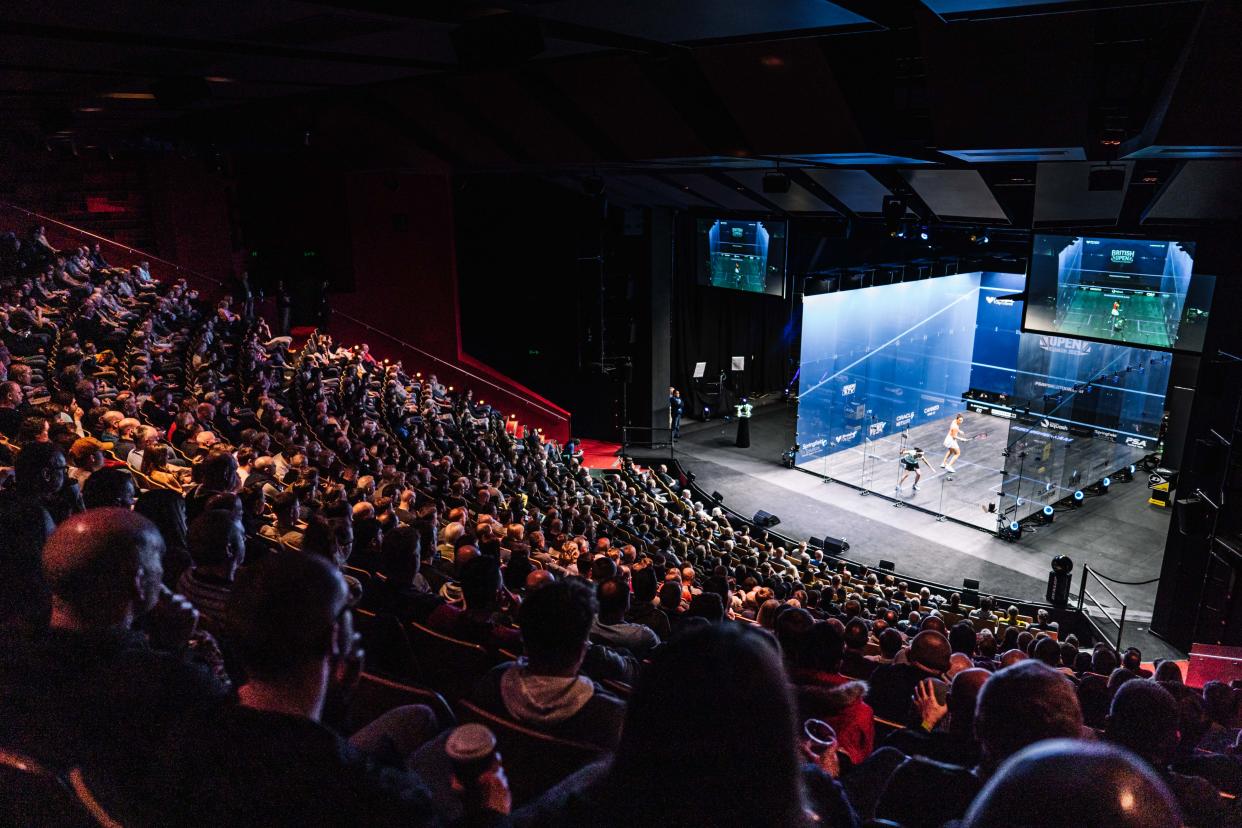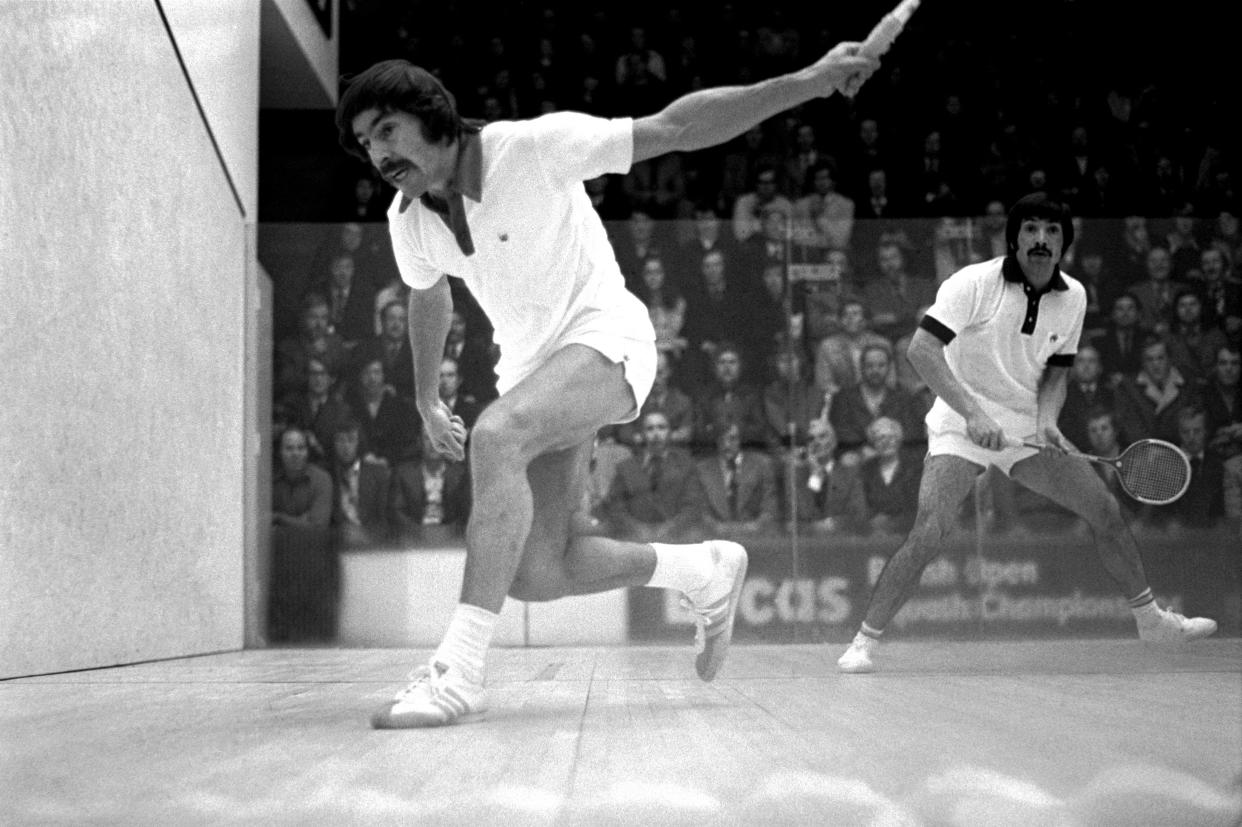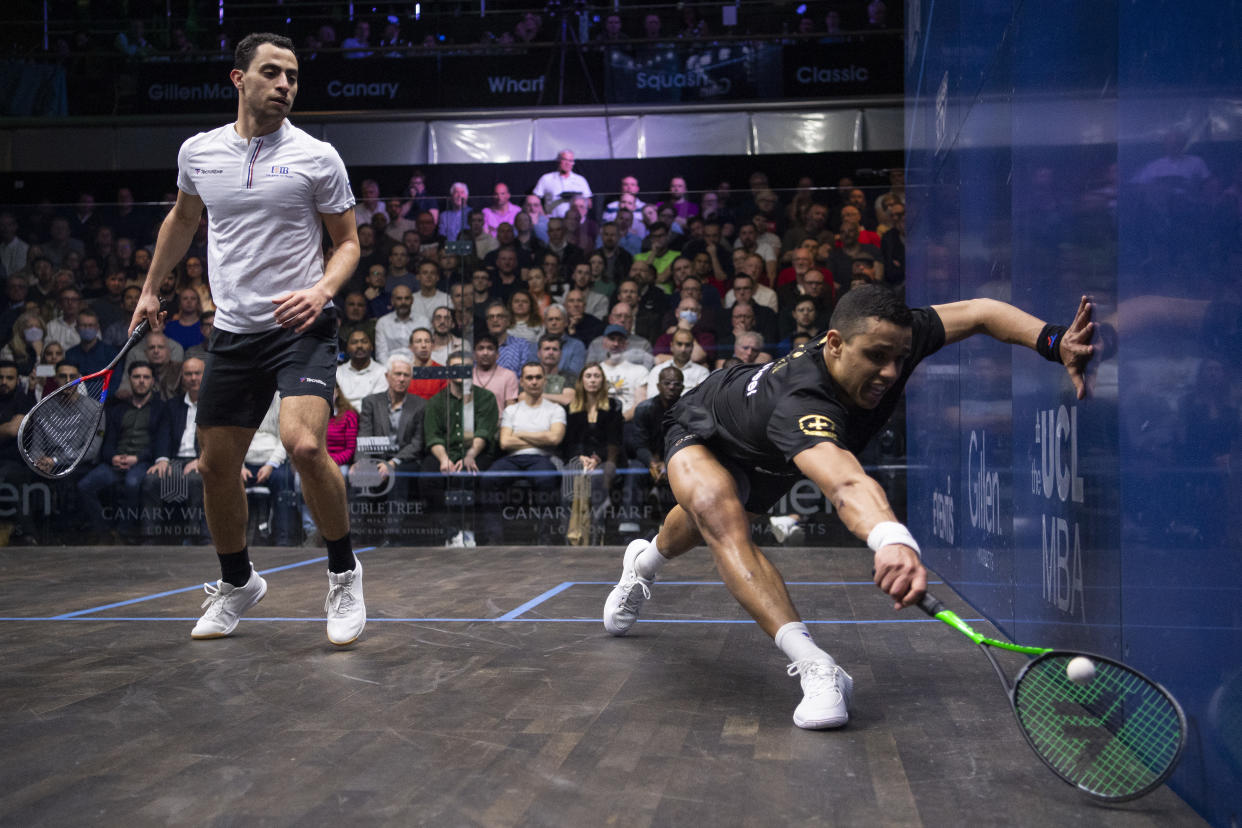After Olympics nod, squash aims for boost backed by Chelsea FC co-owner

Squash is finally emerging from the shadows after long being associated with hidden away back courts — following the boom years of the 1980s — previously seen as the sport of choice for Wall Street financiers and professional players fielding questions on whether squash is an Olympic sport or not.
The latter was put to bed last October. After years of bidding for inclusion, squash was finally given the green light by the International Olympic Committee (IOC) and a place on the Los Angeles 2028 programme. Squash chiefs will be present in Paris over the next fortnight as Olympic ‘new sport’ observers, knowing that the modern-day glass court would have been an ideal candidate to be placed at an iconic location in the French capital.
Read More: ‘We went from artisanal bakery to mass pie production for Premier League clubs'
As well as prime events in front of the pyramids in Cairo, at Grand Central Terminal in New York and harbourside in Hong Kong, the Professional Squash Association (PSA) has expanded its event portfolio over the last decade with eye-catching indoor and outdoor tournaments, from urban locations in Nantes, France to atmospheric theatres like Birmingham’s Rep and London's Alexandra Palace.
It has been one of the success stories for the PSA, the men's and women's world tour body, which is celebrating its 50th anniversary.
“We have the history and haven’t lost the heritage, but we have tried to take it to the people,” says Alex Gough, a former tour player who has been the PSA’s CEO since 2009.

When Gough started in his role, PSA staff numbered four when it moved to its Leeds-based headquarters in 2011. Now, with the advent of its SquashTV arm, Gough oversees around 65 staff, while turnover has increased 25% annually for the last 15 years. “In terms of any business it feels like being reasonably successful,” adds Gough.
“Having come from a purely membership organisation and very much a body which registered tournaments and players joining the rankings, we said ‘good luck’ and waved them on their way.
"Since COVID and launching more of a commercial arm we could bring investment into, that’s what has accelerated the most.”
Last May, the PSA inked a “game-changing” deal with Mark Walter, the Chicago-based philanthropist and multi-sport investor. Co-owner of Chelsea FC and baseball’s LA Dodgers, Walter has backed the last three World Squash Championships in Chicago, which now have equal parity $1m tournaments.

Alongside Walter’s multi-million dollar, year-on-year investment, sports marketing agency, Infront Sports, took a minority stake in Squash Media & Marketing (SMM), a new company formed to manage and monetise the PSA’s commercial rights.
Meanwhile, the fresh investment is set to double the prize pot over the next five seasons, while the PSA recently announced a record $10m in prize money across the 2023/24 season.
Read More: Community Clothing founder: 'The UK high street offering is cheap garbage'
Gough says: “The mentality shifted of everyone else who looks at the sport, it previously felt that squash was a ‘hard luck story.’ Now we get the positivity and people aren’t looking on the outside and going ‘how did that sport get in?’
“Now that we are in, we have to make the most of the opportunity. We have to do a good job on pushing squash out there over the next four years.”
The PSA has already started work on developing an “all-singing, all-dancing upgrade” to its existing world tour court, having enlisted the services of an outside engineering company in Germany. “We wanted a fresh pair of eyes and without the distraction of what’s been done before,” notes Gough.
“We have gone a bit left field, to try and start again and look to adapt and move forward. We know that when we land in LA we have to have a completely different court.”

Along with court aesthetics, the explosive pace of the modern game, coupled with the tight player confines on court, has posed problems for the PSA. One of the sport’s best prospects for LA gold, Egypt star Mostafa Asal, was banned for 12 weeks last year for unsportsmanlike conduct as the sport also grappled with negativity between player and referee.
A rejuvenated Asal, 23, returned in January and thrillingly won his first British Open in Birmingham in June. But earlier this year, NBC television executives had witnessed a tournament in New York where it was made clear that lengthy player-referee interactions would make it unlikely for squash to be televised in the US.
“It does come back to the commercialisation of the sport,” says Gough. “When you are trying to bring in some new brands that are associated with some of the bigger sports, we have to be attractive and live up to that.
"That is going to be our next big target, to be able to drive the prize money up for the players.”
Gough believes that hosting bigger, regular events with several thousand fans is achievable, while making more of the players’ fitness capabilities will also enhance brand attention. Take British player Joel Makin who, based on an average 60-minute match, spends around 80% of the time exceeding his ‘red zone’ target heart rate of 175 BPM, burning around 1,000 calories in the process.

Studies suggest no other racket sport comes close in terms of calories burned. “When you see some of the figures that someone like Joel has done, there may have been some missed opportunities and we need to be pushing those out,” adds Gough.
As Michael Payne, the IOC’s former director of marketing and TV for 20 years, says: “It’s about what sports can bring that is a genuine compliment to the Olympic programme, where people might say 'we have tennis and badminton so do we need another racket sport?'
Read More: How Real Madrid and Abbott are tackling malnutrition with brand reach
“Padel may be trying to push that agenda fairly soon and then you have the question of whether it’s easy to stage and squash would tick those boxes. And then it's about its impact on TV and does it deliver? So it’s all a package.”
As a top player in the late 1990s, Gough “barely remembers” having any conversations on squash and the Olympics. Now he is attempting to build squash as the complete package as the sport readies itself for its greatest stage — an indoor theatrical location being the likely LA venue — in four years' time. And to remain an Olympic sport.
"LA has got everyone focused but, for us, our strategy goes five years beyond that," he adds.
Download the Yahoo Finance app, available for Apple and Android.



